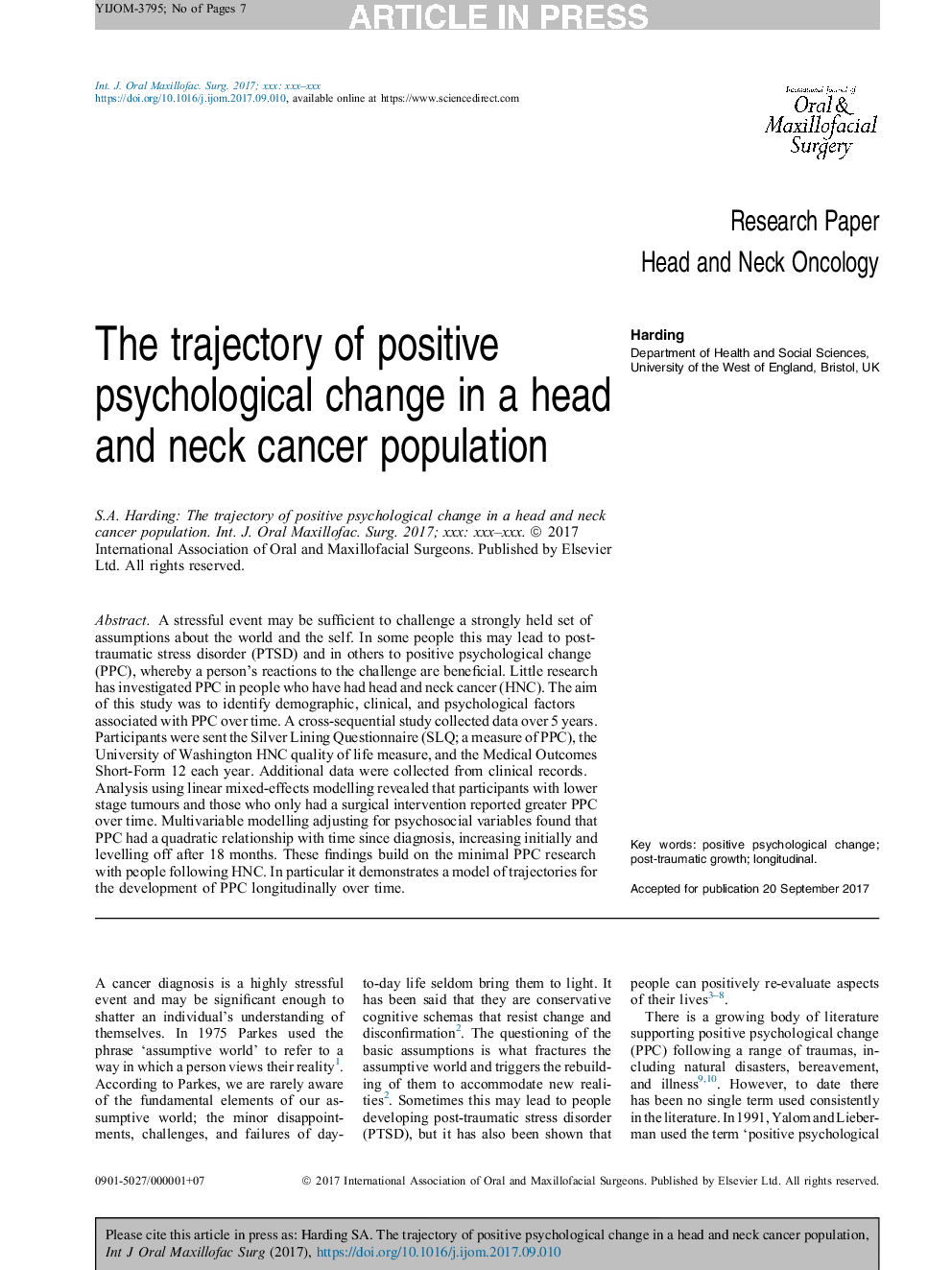| Article ID | Journal | Published Year | Pages | File Type |
|---|---|---|---|---|
| 8697819 | International Journal of Oral and Maxillofacial Surgery | 2018 | 7 Pages |
Abstract
A stressful event may be sufficient to challenge a strongly held set of assumptions about the world and the self. In some people this may lead to post-traumatic stress disorder (PTSD) and in others to positive psychological change (PPC), whereby a person's reactions to the challenge are beneficial. Little research has investigated PPC in people who have had head and neck cancer (HNC). The aim of this study was to identify demographic, clinical, and psychological factors associated with PPC over time. A cross-sequential study collected data over 5 years. Participants were sent the Silver Lining Questionnaire (SLQ; a measure of PPC), the University of Washington HNC quality of life measure, and the Medical Outcomes Short-Form 12 each year. Additional data were collected from clinical records. Analysis using linear mixed-effects modelling revealed that participants with lower stage tumours and those who only had a surgical intervention reported greater PPC over time. Multivariable modelling adjusting for psychosocial variables found that PPC had a quadratic relationship with time since diagnosis, increasing initially and levelling off after 18 months. These findings build on the minimal PPC research with people following HNC. In particular it demonstrates a model of trajectories for the development of PPC longitudinally over time.
Keywords
Related Topics
Health Sciences
Medicine and Dentistry
Dentistry, Oral Surgery and Medicine
Authors
S.A. Harding,
